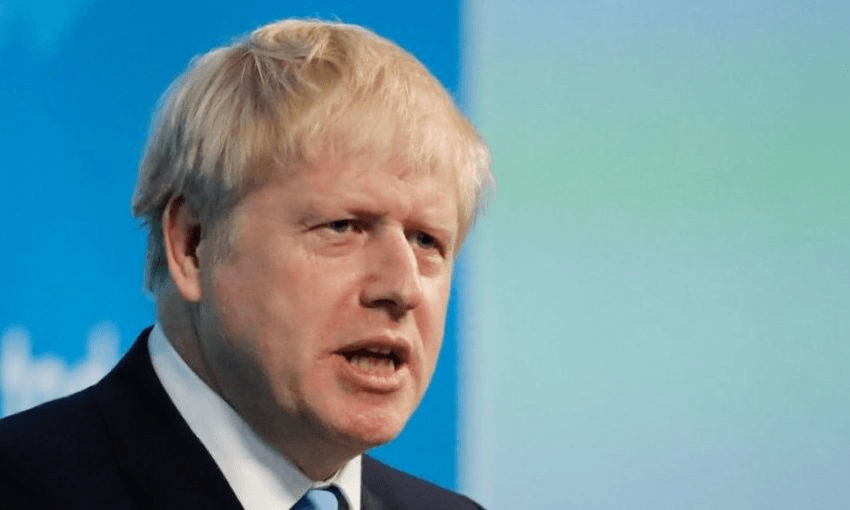Absolute scenes are unfolding in UK right now, with PM Boris Johnson getting an agreement from the Queen to suspend parliament. As you might imagine, it’s all about getting Brexit over the line. Alex Braae has a cheat sheet explaining all.
Wait, he can do that?
Yes, PM Boris Johnson does have the right to ask the Queen to suspend (or ‘prorogue’, in fancy language) parliament. And while the Queen has the right to refuse the request, doing so would go against centuries of constitutional convention against the monarch interfering in day to day politics. The suspension will begin in mid-September, and last for five weeks.
Still, it all seems a bit… extreme?
It is. The BBC reports speaker of the house John Bercow describes it as a “constitutional outrage” to suspend parliament. Some are calling it a coup. Labour leader Jeremy Corbyn is furious. Ruth Davidson, the leader of the Scottish wing of Johnson’s Conservative party, is likely to quit. Former PM Sir John Major has threatened court action to stop it. Across Westminster, monocles are falling out of eye sockets at alarming rates.
Why would Boris Johnson go for this option?
He has set a date of October 31 – Halloween, for the superstitious – on which the UK will leave the European Union, with or without a deal. That’s despite the likely consequences of a hard, no-deal Brexit including shortages of some foods, travel restrictions, chaos at the borders, the possible resumption of hostilities in Ireland, trade troubles and so on. Leaving on October 31 is pretty much the defining pledge of Johnson’s short tenure as PM so far. However, in the British parliamentary system, the PM is just the person who can command a majority in the House of Commons, which means parliament itself has a significant amount of power to block the plans, or try and force him out through a no-confidence motion. But they can’t do it if they’re not sitting.
Hang on, when did Boris Johnson even get elected as PM?
He both did and he didn’t. The UK hasn’t had a general election in which he was a party leader – last time they did, dear old doomed Theresa May was leading the Conservatives. But since then, Johnson has managed to work his way into the Conservative leadership, and with that the PM’s office. It’s all totally in keeping with Britain’s constitutional system.
Even so, given the magnitude of what is going on, should they maybe consider having an election?
They almost certainly will have one this year, but it’s highly unlikely it will take place before October 31. Simply put, Boris Johnson doesn’t have to call one until 2022 if he doesn’t want to, and in any election before October 31 he would likely face a united front of many parties against a no-deal Brexit, and would have a much higher chance of losing the top job as a result. But after Brexit has happened, an election becomes a much better prospect for Johnson. He says he has a “very exciting agenda” to unveil, and his party would likely win the votes of many who voted for the Brexit Party, who topped the polls in the recent European elections.
How are the people taking this?
Depends who you consider ‘the people’ to be – and the theme of defining ‘the people’ has been the undercurrent to everything that has happened since the Brexit vote in 2016. People who support Brexit are jubilant – see, for example, this post on the hard pro-Brexit blog Guido Fawkes. And despite Brexit winning the non-binding referendum by a narrow margin, the developments since have made it an article of faith for many people that carrying out Brexit is now essential for parliament to be following the will of the people.
On the other hand, protests are breaking out all over the country, with calls to stop what many see as a coup. The Guardian reports they started spontaneously in London, before more were organised around the country. A petition against it on the UK parliament website has gathered close to a million signatures in a matter of hours (note – by the time you read this the number will probably be much higher). And the protesters have a pretty fair point – while the voters chose Brexit in the referendum, can it really be claimed that this is how they wanted it carried out?
The final word:
The UK is a country with a long constitutional history, and right now we’re seeing history in the making in real time. Hopefully that’s some consolation for those having to live through it.

